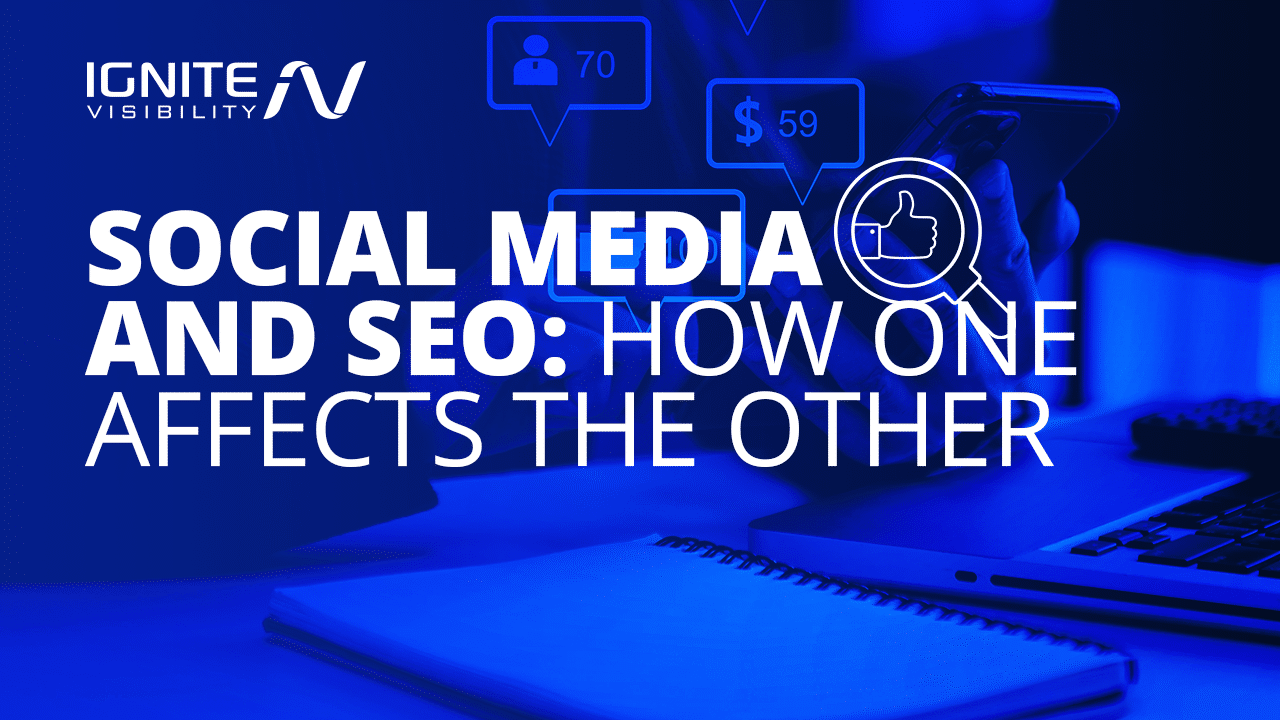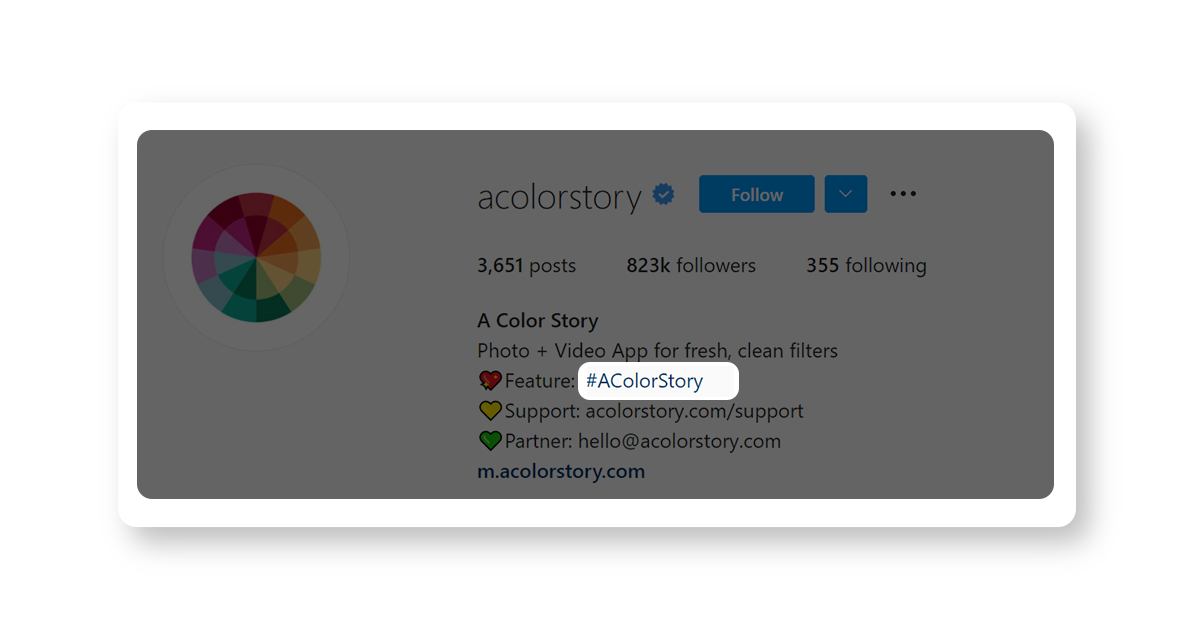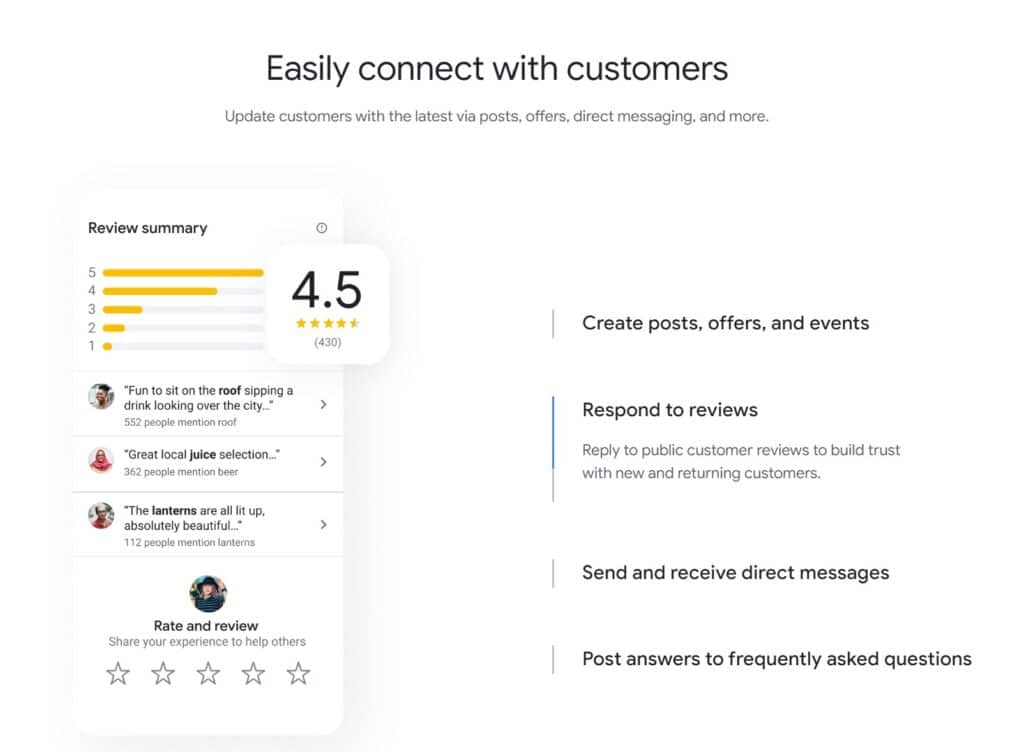
How social media affects SEO has been a big topic of conversation amongst digital marketers for quite some time now. While the answer used to be clear “it doesn’t,” as social media has grown and SEO has evolved, the role of social media in an SEO strategy has also shifted.
In this article, we’ll discuss the intertwined relationship between social media and SEO and how it can directly and indirectly impact your SERP ranking.
Social Media and SEO: Is Social Media a Ranking Factor?
To put it simply: no, social media is not a ranking factor when it comes to SEO. However, that does not mean it can’t have a significant impact on your SERP ranking.
So, what is a ranking factor? A ranking factor is one thing used to determine the quality of a brand through the content on its website. For SEO and Google, there are approximately 11 true ranking factors.
While a robust social media presence can help your SEO, it’s not a ranking factor because other factors are more important.
Back in 2014, Matt Cutts, former leader of Google’s web spam team, confirmed that “social pages are ranking signals” but then changed his statement to say that they are not ranking signals but, instead, their own search results.
Google’s Gary Illyes reiterated this in a tweet in 2016. When asked, “some controversy over whether Google takes social into account for SEO — perhaps Louis Gray will settle this in our next session!” Gary responded, “The short version is, no, we don’t,” which goes to show that he agreed with Cutts’ description of how social media affects SEO.
This means that metrics, including Facebook likes and Instagram followers, etc., have no effect on search rankings.
Understandably, this came as a surprise to many under the assumption that such factors were factored in as indications of brand trustworthiness and quality.
With the release of studies like this one SearchMetrics claiming there was a clear connection between social signals and rankings, marketers were left with mixed signals.
So, while it may not be a ranking factor, it still plays a pretty important role in a page’s SEO ranking.
The History of Social Media and SEO
Whether they have a noted connection or not, there’s no denying that there is a relationship between SEO and social media. Both are huge aspects of digital marketing. Way back in 2010, Google’s Matt Cutts released a video stating that some social media signals were in fact a ranking factor.
The question was:
“Hello Matt, a recent article by Danny Sullivan suggests that Google uses Twitter and Facebook links as a ranking signal. Can you confirm this? Can you elaborate a little bit more on this?”
Cutts answer:
“Yes, I can confirm it. We do use Twitter and Facebook links in ranking as we always have in our web search rankings.”
The article in reference elaborated by explaining that search engines take into consideration things like quality followers and shares to help establish authority and trustworthiness (and therefore earn a higher rank) with Google and Bing.
Fast forward three years and Cutts releases another video – only this time, he changed his tune a bit on how social media affects SEO.
Asked again whether Facebook and Twitter were treated as ranking factors, he replied:
“Facebook and Twitter pages are treated like any other pages in our web index, and so if something occurs on Twitter or occurs on Facebook and we’re able to crawl it, then we can return that in our search results. But as far as doing special, specific work to say ‘oh, you have this many followers on Twitter or this many likes on Facebook,’ to the best of my knowledge we don’t currently have any signals like that in our web search rankings algorithms.”
So the social media links affect SEO, but the other metrics, such as Instagram followers, retweets, and Facebook comments, do not.
The Benefits of Social Media for SEO
There are still some pretty serious benefits to working your social media content into your SEO strategy. Some of these benefits include:
1. Boost Content Performance
Social media can be a great platform to share your content on other channels. It can alert your social media followers to new blogs or content posted on your website, directing them to check it out while driving up organic traffic to your site. As you work on growing on social media, always be sure to repurpose content and direct traffic to your site.
2. Gain Powerful Backlinks
If there’s one thing that is a really important aspect of SEO, it’s gaining backlinks. They show Google’s crawlers that your site has trusted and beneficial content. When Google knows that your site can be trusted to produce quality content, it is encouraged to boost your page higher in the SERP.
Social media is a fantastic way to connect with your audience, as well as other brands and content creators. Those connections are what help you gain powerful backlinks that will help improve your ranking.
3. Rank for Search Terms
Another big way that you can benefit from a solid relationship between SEO and social media is through branded search terms. When someone searches for your brand specifically, they are probably already interested in what you have to offer. They want to look at your social media to get a better feel for your brand’s offerings, values, and mission. When you are consistently posting cohesive content, your social media will pair with your website but still tell a different story, which could appeal to a larger audience.
4. Drive Traffic to Your Website
SEO is all about driving more traffic to your website. Staying active and engaged is a fantastic way to attract people to your content. While SEO is the best way to generate consistent traffic, it can take a while before you start to see the results. With social media, results can come a little bit more quickly. While you’re waiting for SEO to work its magic, use social media to drum up excitement about your brand and drive traffic to your website.
5. Build Trust With Your Audience
When it comes down to it, successful digital marketing is all about trust. Social media is a relatively cost-effective way to build and nurture relationships with your consumers and other brands. When you have strong relationships, trust grows. The more trust people have in your business, the better you’ll be viewed by Google’s crawlers. The better the crawlers view your site, the higher your SERP ranking will be. So while social media and SEO might not seem to be directly related, you can easily see what a substantial impact a solid social media strategy can make.
6. Improve Local SEO
Local SEO is huge, especially if you’re a brick-and-mortar location. A great social media strategy will support and improve your local SEO strategy. For example, when you make sure that your NAP (name, address, phone number) is consistent across all platforms, it helps form the necessary connection between your website and your other active platforms.
Consumers are also able to leave reviews on your social media platforms. This works hand-in-hand toward building the trust necessary to really grow your digital presence. When your social media platforms are optimized with keyword-rich descriptions, consumer reviews, and an updated NAP, your local SEO will really benefit.
Start Leveraging Social Media SEO
As you can see, a solid and well-designed social media strategy is key to achieving growth in your SEO strategy. Now that you understand how social media affects SEO, here are some actionable steps you can take to start seeing improvement in your own results.
Optimize Profiles with Keywords in Your ‘About’ Section
An optimized social media profile can make all the difference in the ROI you see from both your social media strategy and your SEO strategy. Be sure to optimize your bio or About section with the appropriate keywords.
For example, if you are a local coffee spot, use targeted keywords such as “San Diego coffee shop” or “coffee shop near [local landmark].” This will help capture the people searching for similar terms.
The same can be said for hashtags. Include branded hashtags to improve your searchability

Branded Hashtags in Instagram Bio
Link Back to the Core Services or Products on Your Website
Do your consumers know you for a particular product or service? Feature it prominently on your social media and include links back to your website! This will help get you noticed by the people looking for similar products or services while also giving existing customers something they can easily share.
Accurate and Consistent Contact Information
Regardless of whether you’re on two social media sites or ten, it is important to update it with accurate and consistent contact information. Not only will this make it easier for your consumers to contact you, but it will also provide the consistency Google needs to start to trust your content.
Respond to Negative Reviews
We all love positive reviews, so responding to those usually isn’t hard. However, receiving a negative review might not make you feel as enthusiastic about responding. Fight that feeling and respond anyway. Responding to negative reviews will show your consumers that you care about your customers and you’re open to improving things to make it better for them.

Respond to Customer Reviews
Answer Client Questions
Social media is the perfect place to engage with your audience. So, when they ask you a question, answer it! Not only will it give them the information that they’re looking for, but it’s also creative social media engagement.
Build Content That’s Appealing to Prospective Clients
With all the different social media platforms today, there are so many ways that you can appeal to your prospective clients. In order to really capture their attention, you need to get on their level. Do they love and interact with photos the most? Be sure to post ones that will generate feedback, interest, and engagement. Maybe they like short-form videos? Create a few featuring your favorite products or answering popular questions. Whether you focus on photos, views, or texts, make sure it’s something your audience will enjoy.
Share Content
Generating connections and nurturing relationships is a key part of social media success. Sharing other brands’ content is the perfect way to do this. It shows them that you want to make a connection with them while also showing your customers what resonates with you.
Utilize Hashtags
Whoever said hashtags were dead was lying. Hashtags are still one of the best ways to end up on someone’s feed on many popular platforms, including Instagram and TikTok. Before you add any old hashtags to your content, do some research to see what is popular and what is trending with your audience right now.
FAQS About Social Media and SEO
1. Do specific platforms have a bigger impact on SEO than others?
Sometimes. YouTube, which is owned by Google, is one of the best social media channels to be on. Instagram is one of the most popular and Facebook is great for “near me” searches. However, as long as you’re consistent with whatever platforms resonate most with your audience, you’ll see an improvement in your SEO.
2. How does the quality of content on social media reflect on SEO performance?
When it comes to content, quality is everything! On and off your website, consumers are only going to resonate and engage with your content if it provides some sort of benefit to their lives. You should always push to generate quality content over simply putting out content for the sake of posting.
3. How do social media profiles and their optimization affect brand searches?
Brand searches are just that – someone searching for a specific brand. When your social media profiles are optimized for your specific brand or similar ones, you’ll be more likely to show up in those targeted searches.
4. Does social media play a role in local SEO strategies?
Yes! Social media plays a huge role in local SEO strategies. Having consistent contact information on all of your social media platforms, as well as responding to reviews and optimizing your NAP, will make it easier for people to find you, especially locally.
5. Can a viral social media campaign help improve organic rankings?
Yes. When your content goes viral, it puts more eyes on it, which will direct more people to your site. SEO is all about consistency though, so you can’t base your whole strategy off of going viral. Creating quality, consistent, and cohesive content across the board will help your SEO in ways you can’t even imagine.
Pair Your Social Media and SEO Strategy Today!
Start making your social media and SEO work for you. By pairing these two organic strategies, you’ll boost your visibility factor and online presence.
Clients from all industries have chosen to work with Ignite Visibility to help them balance the relationship between their social media and SEO strategy.
Ignite can help you:
- Gain powerful backlinks to build your domain authority
- Drive more traffic to your website than ever before
- Improve your local SEO presence
- Build trust and credibility with your audience
- And more!
Let us dive in and help you optimize your SEO and create quality social media content.